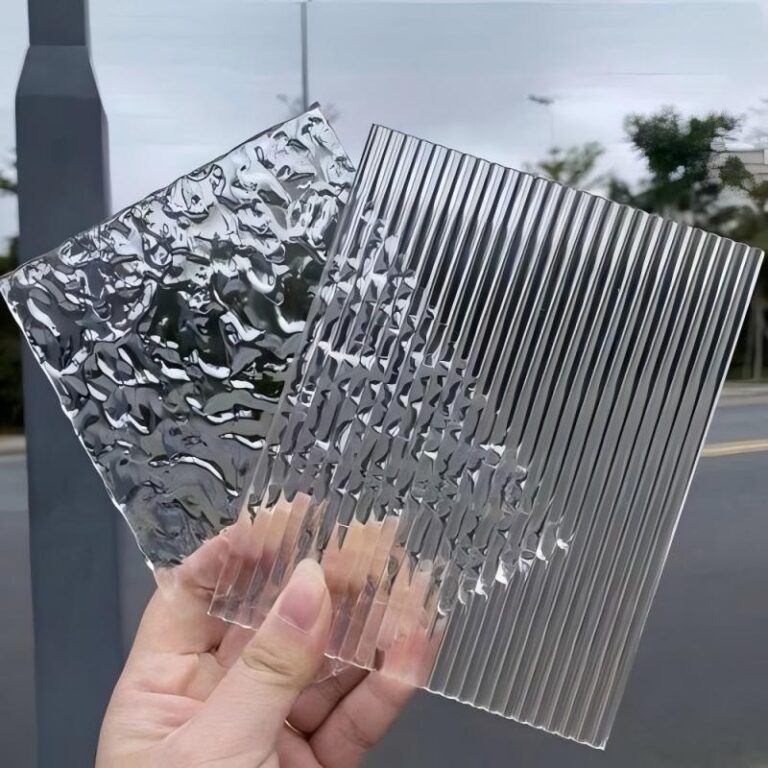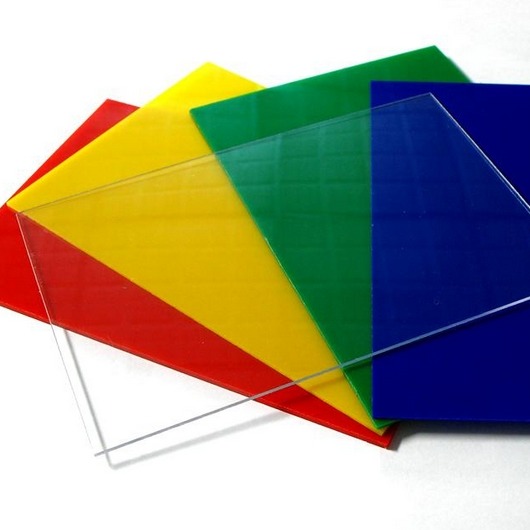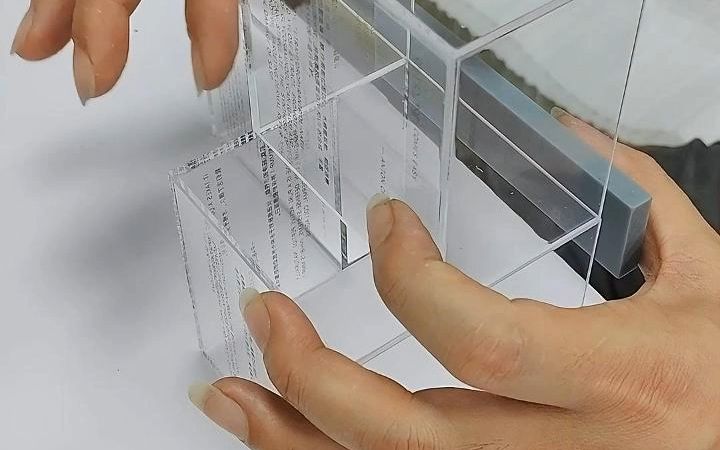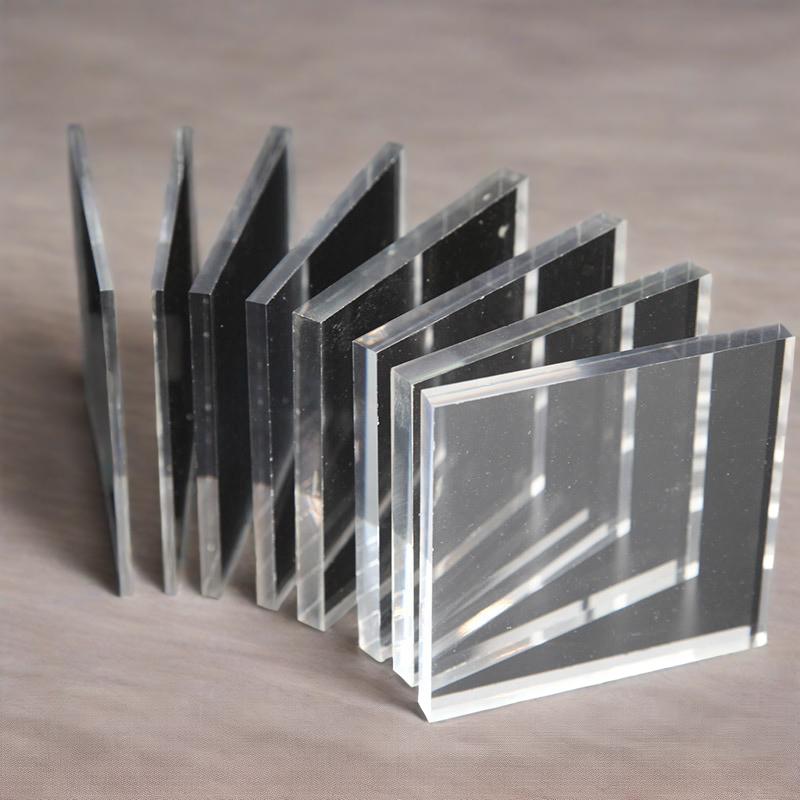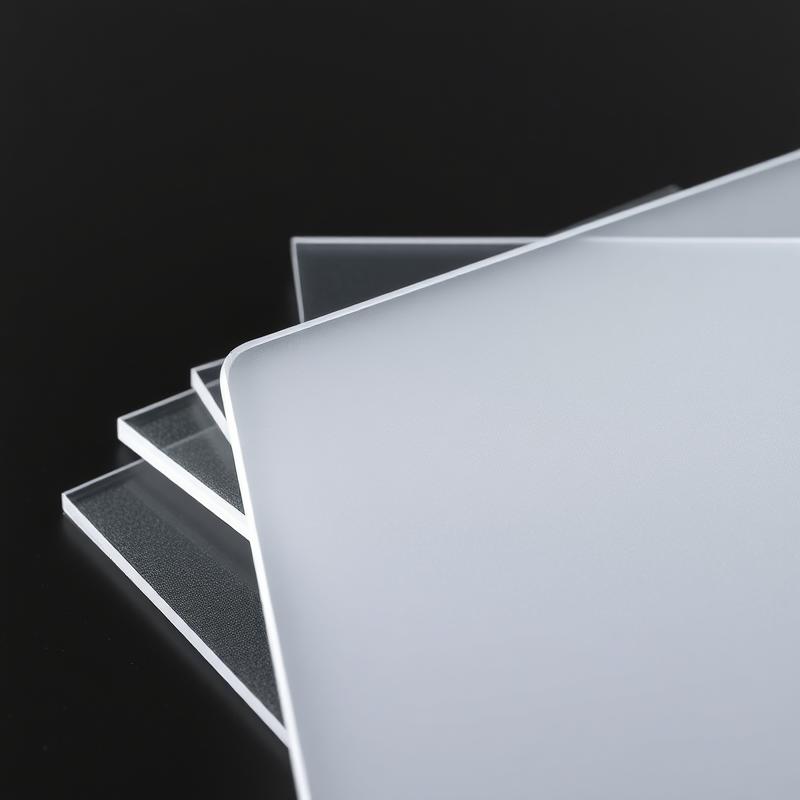-
Xinqi Development Zone, Leliu, Foshan, Guangdong

How does Color of Acrylic Sheet Affect Light Transmittance?
Table of Contents
Introduction
Acrylic sheet has become the core material for architectural decoration, advertising signs and industrial design with its ultra-high light transmittance of 92% and rich color selection. However, the significant effect of color on light transmittance is often overlooked – the light transmittance of dark red sheet may be less than 1/3 of that of light blue. According to the American Society for Testing and Materials (ASTM) research, color differences can cause the light transmittance of acrylic sheet to fluctuate by as much as 87%. This article will combine optical principles with industry data to analyze how color regulates light transmittance and provide scientific material selection strategies.
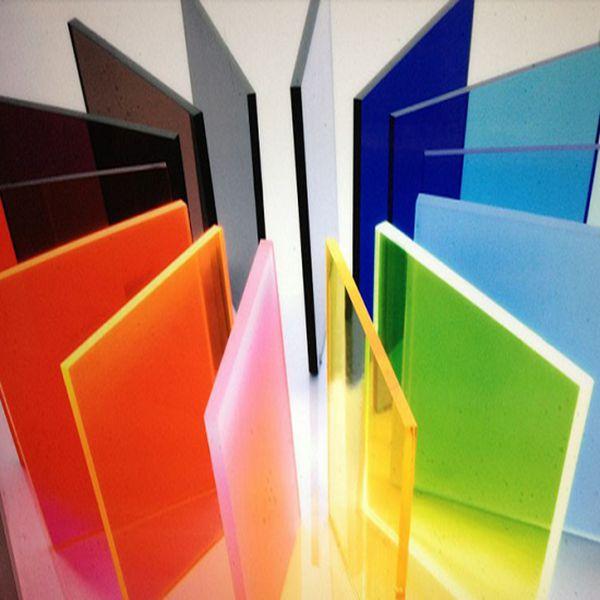
1. Transparent acrylic: the gold standard for optical performance
As a light transmittance ceiling, the light transmittance of transparent acrylic sheet reaches 91-92% (Plaskolite technical report), which is almost the same as glass but lighter and safer. This characteristic originates from the molecular structure of polymethyl methacrylate (PMMA), whose carbon chain is arranged regularly, which can minimize light scattering (Research on Optical Properties of Polymer Materials). In the lighting dome project of the Museum of Modern Art in New York, 12mm thick transparent acrylic sheets successfully achieved seamless connection between natural light effects during the day and at night, and increased energy saving efficiency by 40% (MOMA Architecture White Paper).
2. Translucent Sheets: Artistic Expression of Light Diffusion Technology
By adding silica particles or surface etching process, translucent acrylic sheets can accurately control the light transmittance at 30-70%. Experimental data from Toray of Japan showed that 0.5% silica addition can expand the light scattering angle to 120°, which is particularly suitable for LED advertising light box production. The navigation sign system of Shenzhen Airport uses matte white acrylic, which ensures 70% light transmittance while achieving uniform light diffusion to avoid nighttime light spot interference (Aviation Lighting Design Specifications).
3. Dark-colored sheet material: Engineering wisdom of light wave filtering
Dark-colored acrylic sheet (black/dark brown/dark green) absorbs light of specific wavelengths through organic pigments, and the light transmittance drops sharply to 5-20%. Chromatographic analysis by Bayer Material Laboratory in Germany shows that 3mm thick black acrylic sheet can absorb more than 95% of the 580-620nm band (yellow-orange light), making it the preferred material for the filter of the operating room shadowless lamp. In the design of the presidential suite of the Burj Al Arab in Dubai, the dark amber acrylic partition not only ensures privacy, but also cleverly retains the light and shadow aesthetics of the desert sunset (Luxe Interior Design Yearbook).
4. Colored transparent board: double-effect balance of spectral selection
Colored transparent acrylic adjusts the light transmission characteristics through dye concentration:
- Light color (sky blue/light pink): light transmittance 60-85%, suitable for lighting windows in children’s hospitals
- Saturated color (pure red/sapphire blue): light transmittance 25-45%, mostly used for art installations The Photophysics Laboratory of the University of Cambridge in the UK found that the blocking rate of 2mm thick magenta board for green light (495-570nm) is as high as 89%. This selective light transmission characteristic is used in the supplementary lighting system of plant factories (Advanced Optical Materials 2019).
Comparison of industry application data
| Color type | Transmittance range | Typical thickness | Application scenario | Energy efficiency |
| Transparent | 90-92% | 3-8mm | Greenhouse ceiling | Energy saving 35% |
| Light blue | 75-82% | 5mm | Aquarium | Uniform light transmission |
| Frosted white | 50-60% | 4mm | Light box advertising | Glare reduction 40% |
| Dark gray | 8-12% | 6mm | Theater partition | Shading 97% |
Conclusion
The color selection of acrylic sheet is essentially an optical engineering decision: for every 0.1% increase in pigment concentration, the light transmittance will decrease by 0-3% (depending on the color system). Designers should follow the principle of “function first, aesthetic optimization” – antibacterial blue (82% transmittance) is the first choice for medical space, pearl white (65% transmittance) is recommended for commercial lighting, and laser fantasy panels (48% transmittance) can be boldly used for art installations. As Dr. Smith, director of 3M optical materials, said: “The color of acrylic panels is not only a decorative language, but also a precise light control technology.” Contact Sanyu Acrylic for more detailed information.

